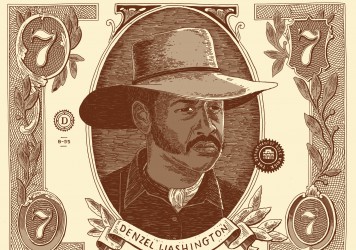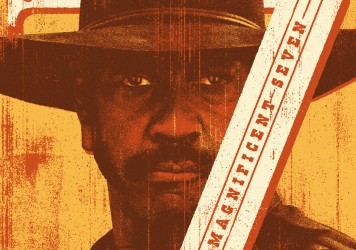Viola Davis steals the show in this faithful stage adaptation from director Denzel Washington.
This is a filmed version of a 1983 play by August Wilson, with Denzel Washington in the lead role and the director’s seat. From its detailed, verbose opening phrases, it’s clear that this is an opportunity to watch great actors going through their expressive motions. Long takes, longer monologues, one central location, very little concession to considering how the tools of cinema might enhance this roistering, anguished text. In fact, it’s the delicate flourishes that dent the illusion of reality which, in turn, brings the whole thing down.
As an(other) impassioned speech surges towards its inevitable crescendo, sentimental music rises in the sound mix, signposting emotions that do not need signposting. As Washington shimmies from the interior of a small house into the yard (where much of the key drama takes place), the camera pans down the steps offering a close-up on his feet. It’s a small touch but it stands out – more as an attempt to make the presence of the camera felt, however briefly, than something that adds to the story. Yet when Washington simply points the camera at his actors, trains it on their faces, and watches them as they talk, he inevitably lands on moments of magic.
This is most fascinating as a film about annunciation and interpretation. The grammar is as important (if not moreso) than the words – where to pause, where to hesitate, where to pull back and re-start a thought, where to get loud, where to go quiet, when to interrupt, when to pass the baton.
Fences is the story of a surly, charismatic down-and-out named Troy Maxon (Washington) – an ex- baseball player-turned-dustman in ’50s suburban Pittsburgh and king of his modest castle. On a Friday, he swaggers home with his buddy, Bono (Stephen Henderson), slams down his paycheque of $76.42 on the dining table, and sips from a pint of gin – his unwinding ritual. His wife, Rose, is played by Viola Davis, and she is secretly the film’s main character. She doesn’t just tolerate Troy, she adores him and it’s easy to see why. He’s a fiendish raconteur, able to tangle an unsuspecting listener into his fanciful yarns in an instant.
The character is a rambunctious gift that Washington duly accepts and unwraps, perhaps a little too overzealously. As a man he’s a force of nature, as a character, there are no contrasts. He’s an armchair activist, fully aware of racial inequality in America but unwilling to make things better for anyone other than himself.
It is Davis who makes this film sing. She is an actor who has made a habit of finding untapped depths in even the most minor, poorly written of characters (of which this is not one). Wilson’s dialogue hands her the opportunity to get the emotional pistons firing. What makes her performance so effective is that the story monitors a change in temperament. Her anger is locked inside until her scallywag husband eventually rips it from her chest. Her transition from dutiful, ornamental bride to bruised avenger is invigorating to observe.
Where Troy’s heart is always visible in plain sight, Rose is the more quietly tragic figure. She suppresses her torment. It festers internally. It’s a story about dignity and self-hatred, awed men and abused women, a vision of a radiant, hopeful America and the depressing, complex, apocalyptic reality.
Published 9 Feb 2017
Two powerhouse actors sparring in a Pulitzer Prize-winning play.
The richness and intensity doesn’t make the jump from stage to screen.
Washington is customarily magnetic, but this is Davis’ film.

In a landscape of total celebrity saturation, is this enigmatic Hollywood icon is the last of the pure movie stars?

Charlie Kaufman’s directorial debut is a difficult, maddening and elusive film that’s also intriguing, profound and darkly funny.

Saddle up with our epic Stetson-tip to Antoine Fuqua’s gritty western remake.